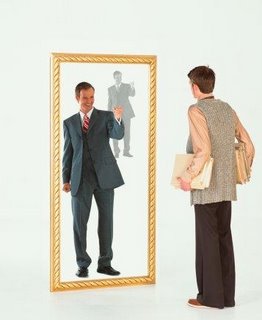
After seeing the movie "Basic Instinct 2," I started to get confused of the term "truth." As we know about existentialism, every truth comes from the process, which consists of the information obtained, estimate of resource credibility, and our own memory checking with logistic thinking. However, there are various "potential truths," which might be in extremely opposite position of the spectrum, fitting in with this process.(亦即,有些可能的真相,套入同樣的Process去審視,會由於不同的邏輯角度,跟自身的偏見,得到不同的結果,但這不同的結果,卻都合理) As soon as figuring out a reasonable answer, we may easily have a prejudice that the potential truth is the real one, although there are still other answers. How can we identify the truth? Digging in such kind of information may result in more and more puzzles as the doctor performs in the movie. Could we solve it only by our brain?
Or maybe the better way is by pure heart.
 Is it always bad not knowing the truth? Some people may not think so. As we grow up, we don't like the truth especially the criticism of ourselves. Some of us build our self-confident by performing well, but some of us by rejecting the criticism. With sending the messages that I don't like to listen to any censure for my performance, we will receive nothing or only praise. By accumulating these praise, we will have a strong self-confident, although there may be more criticism untold. With this self-confident, we can perform some excellent presentations in business, and more praise follow. Is that a kind of cheating ourselves? However, we do become a better presenter with confidence.
Is it always bad not knowing the truth? Some people may not think so. As we grow up, we don't like the truth especially the criticism of ourselves. Some of us build our self-confident by performing well, but some of us by rejecting the criticism. With sending the messages that I don't like to listen to any censure for my performance, we will receive nothing or only praise. By accumulating these praise, we will have a strong self-confident, although there may be more criticism untold. With this self-confident, we can perform some excellent presentations in business, and more praise follow. Is that a kind of cheating ourselves? However, we do become a better presenter with confidence.

